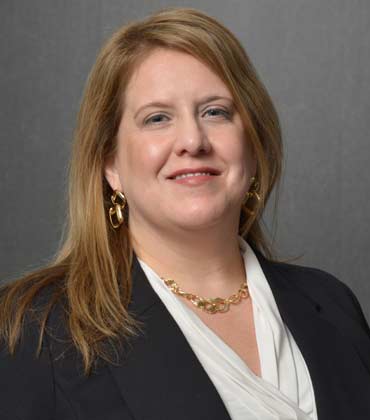Tara Hankins is a seasoned professional with over 25 years of experience in the medical industry. Having initially served as a staff perfusionist at Deborah Heart and Lung Center, she has ascended to the role of Chief Perfusionist, Administrative Director of Surgery, and Vice President of Surgical Services within the same organization.
In an exclusive interview with Healthcare Business Review, she shared her invaluable opinions about the current transformations within the industry, as well as the trends likely to become prominent in the foreseeable future.
Could you talk about your journey within the industry, as well as your responsibilities within your current organization?
I have been a part of Deborah for 25 years. It is a unique specialty hospital in the Pine Barrens, established a century ago as a tuberculosis center. Deborah has a distinct mission of not placing a price tag on life, and is one of two hospitals in the country that refrains from balance billing patients.
My journey here began in cardiovascular perfusion, overseeing the heart and lung machine during open-heart surgeries. Subsequently, I pursued higher education, earning a master's degree, and progressed through roles such as Director of Bariatrics and Administrative Director of Surgery. Currently, I hold the position of Vice President of Surgical Services and Chief Perfusionist at Deborah.
What are some of the challenges that you face as a leader in your day-to-day life?
As a specialty hospital, the recent challenges in our cardiac services primarily revolve around the ongoing development and expansion of our heart failure initiatives. Deborah has positioned itself as the foremost implanting center for destination therapy LVAD in the country this year, marking a substantial achievement.
Our challenge lies in effectively meeting the escalating demand driven by the growing population grappling with heart failure. This dynamic shift necessitates a strategic response to ensure that we seamlessly address the evolving healthcare needs associated with cardiac conditions.
What are the steps that you have taken to address this increasing demand?
At Deborah, the transition to a new service line represented a pivotal shift. While we had previously addressed heart failure, the comprehensive expansion into implantable ventricular assist devices (LVADs), with a particular focus on the HeartMate 3, has been a transformative endeavor.
Our attention has also extended to the treatment of patients experiencing cardiogenic shock, necessitating an augmentation of our services to effectively cater to this specific population.
What are some of the recent technological trends that you are witnessing within the cardiothoracic surgery space today?
In our initial foray into heart failure treatment at this small rural hospital, the journey commenced with a model of shared care, progressively evolving to include the independent implementation of ventricular assist devices (VADs). Our aspirations extend towards a broader horizon, aiming to incorporate heart transplant services into our repertoire. The envisioned trajectory involves a comprehensive expansion, ensuring that we are positioned to offer a seamless continuum of care for patients grappling with heart failure.
Could you talk about some initiatives that you are currently working on?
As we embark on expanding into multidisciplinary committees, the focus is on enhancing the quality of care for heart failure patients. This initiative has organically extended its reach into vascular surgery, with dedicated research projects. Since patients are now experiencing extended lifespans on durable ventricular assist devices (VADs), the emphasis has shifted towards optimizing their overall quality of life during this prolonged duration.
The primary goal is to systematically explore avenues for improving the well-being of individuals living with VADs, maximizing their quality of life to the fullest extent feasible during their time under our care.
What would be your advice to fellow peers within the industry?
For us, establishing widespread involvement across every department within the hospital was paramount in comprehending and effectively managing the complexities associated with treating patients with ventricular assist devices (VADs). The success of this initiative was facilitated by the seamless rollout of the shared care program, spearheaded by Kulpreet Barn MD, Medical Director of Advanced Heart Failure which played a critical role in acquainting various departments with the intricacies of managing VAD patients. The foundational phase, initiated three years ago during our transition to becoming an implanting center, laid the groundwork for our subsequent accomplishments.
Is there anything else that you would like to mention?
The projected statistics reveal that over 6.7 million Americans aged twenty and above currently grapple with heart failure, with an anticipated surge to 8.5 million individuals developing heart conditions during their lifetime in the United States. This prevalence highlights the pressing need for proactive measures to address the growing demand for heart failure care. As a specialized cardiac hospital, there is an inherent obligation to prepare for the future and efficiently meet the growing needs of this expanding patient population with heart failures.


